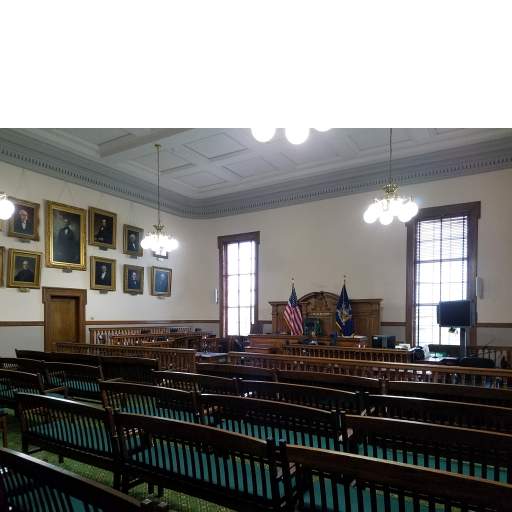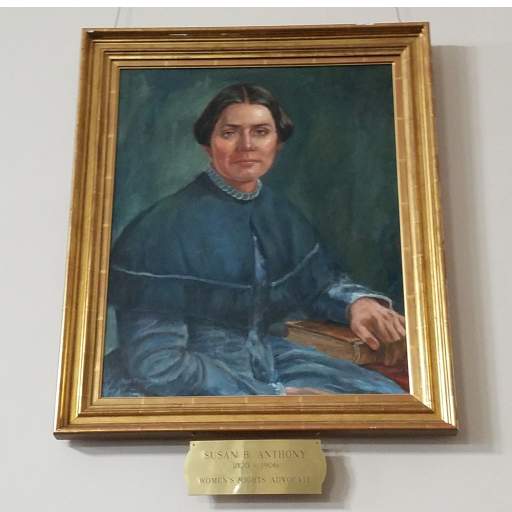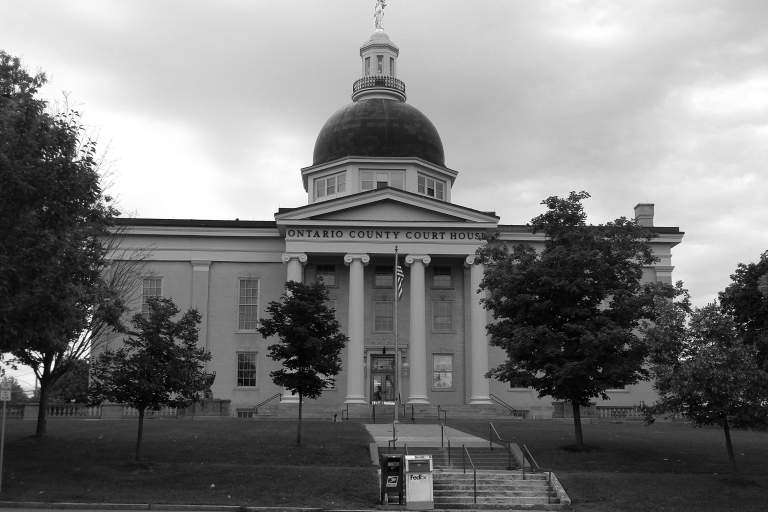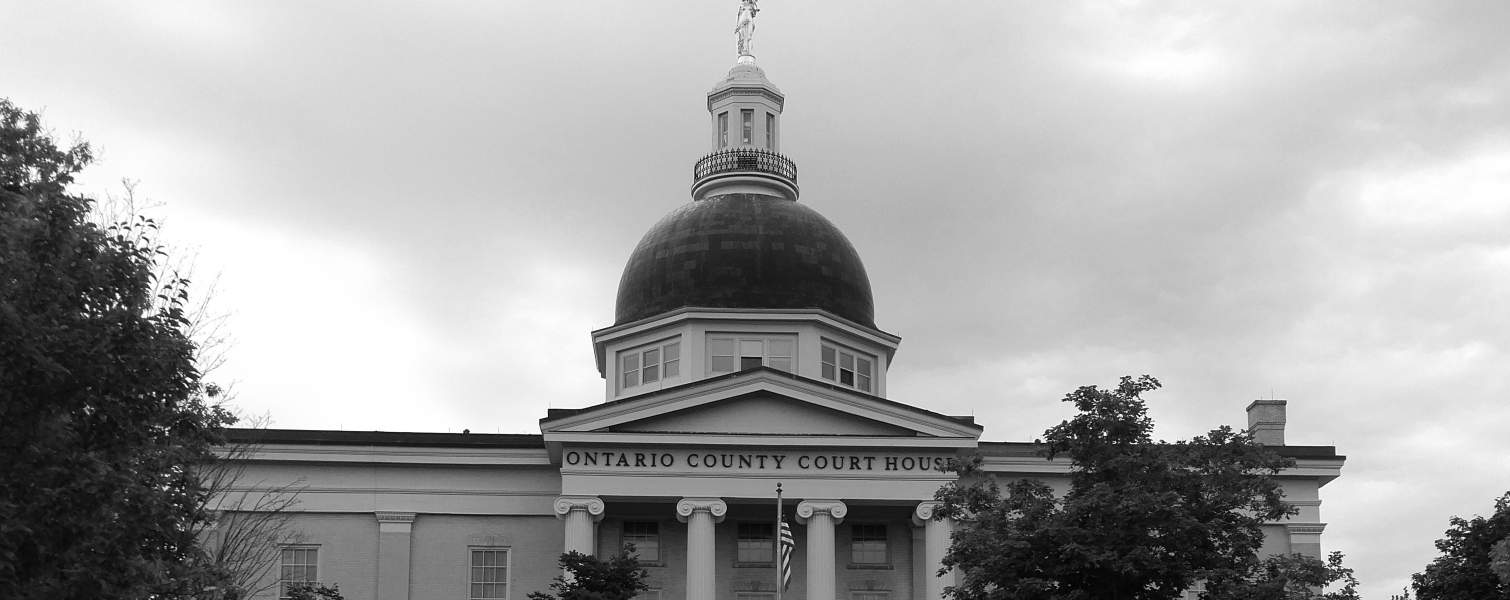The Freethought Trail continues its ongoing observance of the centenary of woman suffrage by adding pages to interpret the trial of Susan B. Anthony for voting illegally in the U. S. Presidential election of 1872. New pages profile Canandaigua, New York, where the trial was held; and the Ontario County Courthouse located there, where the important trial actually took place.
Anthony was tried in Canandaigua on June 18, 1873. The trial had been moved there from Rochester, where Anthony actually voted, because she had made so many speeches afterward in the Rochester area that officials feared it might be impossible to empanel in impartial jury there. Justice Ward Hunt, who had recently been appointed to the U. S. Supreme Court, presided. His conduct of the trial was irregular; he wrote his decision before the trial began and ordered the jury to find Anthony guilty, a legal tactic the Supreme Court would declare unconstitutional in 1895. Hunt fined Anthony $100, a sum she never paid.
The historic Ontario County Courthouse still stands. A rehabilitation project in the 1980s restored the courtroom to its appearance at the time of Anthony's trial.
The new page on Anthony's trial can be viewed at https://freethought-trail.org/trail-map/location:trial-of-susan-b-anthony/.
The background page on Canandaigua can be viewed at https://freethought-trail.org/regions/region:canandaigua/ .
The Freethought Trail gratefully acknowledges the assistance of Ontario County deputy administrator Brian Young, who made it possible for Freethought Trail director Tom Flynn to visit and photograph the historic courtroom.
The adoption of the Nineteenth Amendment to the U. S. Constitution on August 18, 1920, merits celebration. New interpretive pages will be added to the Freethought Trail website between now and August 2020. This will include detailed coverage of every annual New York State suffrage convention held in the Freethought Trail's catchment area (basically west-central New York between Rochester and Utica) between 1848 and 1915.
The Freethought Trail debuted in 2005 at www.freethought-trail.org. It celebrates historic sites, marked and unmarked, important to the history of radical reform within about 100 miles of the Robert Green Ingersoll Birthplace Museum. There are many such sites -- 131, at this writing -- because west-central New York was a hotbed of social ferment during the nineteenth and early twentieth centuries. The Freethought Trail helps the curious to locate sites important to abolitionism, woman suffrage, freethought, sex radicalism, dress reform, and other radical movements, and stand "where history happened" whether a site is now unmarked, marked, or the site of a museum.
The Freethought Trail is a project of the Council for Secular Humanism, a program of the nonprofit Center for Inquiry.

Susan B. Anthony Trial Courtroom
An ambitious 1987 - 88 renovation restored this grand courtroom to its late-eighteenth-century appearance. Its walls bear numerous portraits of influential judges and community leaders -- and a portrait of Susan B. Anthony.

Susan B. Anthony portrait
This portrait painting hangs in the Ontario County Courthouse courtroom in which she was tried. The portrait apparently shows Anthony at a slightly younger age than at her trial; at the time of her trial she was fifty-three years old.

